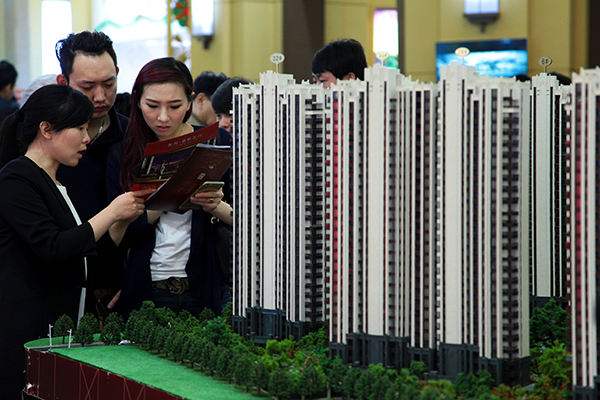Art of living during home price drops


The act of playing close attention to the swings of the residential property prices and their impact on the various stakeholders has prompted me to meditate on mind, philosophy and life in general.
For example, home prices have been on a bit of a rollercoaster ride over the past year. This has caught many homebuyers and investors on the wrong foot.
That's because in the past, the general direction of the prices was up, up, up. The sustained upswing created a wrong expectation that if you invest in real estate, high returns on investments through resale in the future are automatic, guaranteed.
When that expectation was thwarted recently, anger, frustration, disappointment and despair ensued.
For instance, toward the end of June, more than 10 Beijing-based homebuyers, sporting T-shirts emblazoned with "Tuifang" (Chinese for 'refund the money'), gathered outside a residential project's sales office in Tongzhou area of the city, and demanded that the property developer compensate them for losses suffered.
They were upset the apartments they had bought at prices like 40,000 yuan ($5,865) per square meter in August 2017, depreciated in value after the next phase of the development in April saw similar units being sold at "just" 22,000 yuan per sq m, or almost half the price a few months back.
And those who paid more earlier felt cheated and hence were miffed.
That kind of protest is not entirely uncommon. In 2008, the sales office of China Vanke in Hangzhou was stormed by homebuyers as four residential projects announced a 25 percent discount for units in the next phase of development.
Similarly, in 2011, homeowners in Shanghai protested against cuts in the prices of new apartments in their residential projects, because that eroded the value of their existing properties. They demanded the developer either refund "excess" money collected from them in the past or buy back their flats so they could buy new flats at lower rates now.
Kang Hui, an industry analyst, said he is amused some homeowners are irrational and don't understand simple market forces. "Ten years later, if the apartments they had bought at, say, 8,000 or 9,000 yuan per square meter, soar to 50,000 yuan per square meter, would they return their properties to the developer at old rates?"
To be sure, some relatively new apartments that were sold at prices lower than those developed earlier, had seen their resale value surpass the original price. "Price adjustments in the short term merely reflect supply and demand," said Chen Sheng, president of the China Real Estate Data Academy.
So, homeowners' demands for refunds on price drops are not only irrational but not legal, experts said.
"Just as property developers have no right to ask homeowners to pay more in the event of market value going up, homebuyers have no right to ask developers to compensate for any perceived losses due to price drops," Duan Kuang, a professor from Fudan University, told China Youth Daily.
The new trend in home prices was a result of a series of restrictions and policy tightening that started in September 2016, to rein in speculative investments in the property sector.
The government had to step in and emphasize that homes are for living, not for investment purpose.
The new era of tight controls and rational pricing has sounded the death knell for speculative investors. So, homebuyers would do well to recognize that continual price upswing is history.
Prices of even pre-owned apartments that soared high above a city's natural price levels, despite poor infrastructure and lack of amenities in the neighborhood, will likely edge down in the months to come, said Xu Xiaole, chief market analyst with the Ke Research Institute, a research organization under the aegis of online real estate brokerage Ke.
Overall, there is no need to be pessimistic, Chen of the China Real Estate Data Academy said. "Generally speaking, value of properties in China will grow steadily for another 10 years, especially till the urbanization rate reaches the goal of 70 percent. We're talking about demand for 10 billion square meters."




































